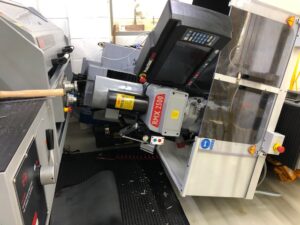Nestle was fined £807,776 (inc.costs) after an employee suffered life-changing injuries at its factory in Newcastle upon Tyne.
- The problem occurred on a machine used to make chocolate sweets.
- The company had not properly assessed the risk created by the rollers under the conveyor belt
- They had failed to guard the roller, which was a dangerous part.
- On November 30, 2020 a maintenance technician was investigating a problem on the conveyor belt on this machine.
- While checking the machine, his sleeve was caught in a roller, which dragged his left arm into the machine, trapping it between the roller and a conveyor belt.
- It was foreseeable that employees would require access to this area and there was a clear risk of injury to employees coming into contact with this roller.
- Nestle had previously been prosecuted following a similar incident at its Halifax factory
The HSE inspector said:
“This incident could easily have been avoided had Nestle properly reviewed the safety measures at its plant and its equipment to ensure that access to dangerous parts was prevented. Nestle were aware of this risk following a similar incident at its Halifax plant but failed to take appropriate action.”

